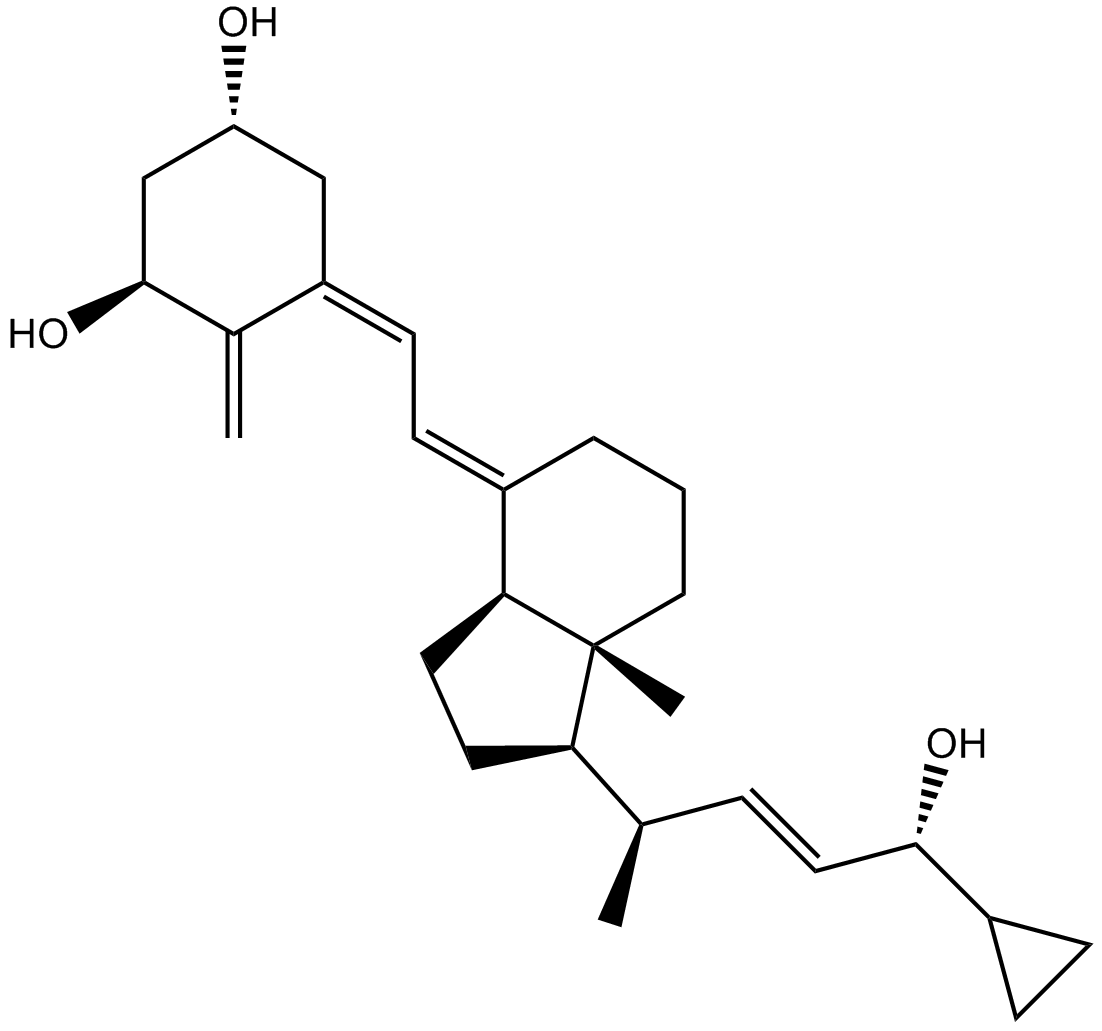Calcipotriol |
| Catalog No.GC17682 |
A vitamin D3 analog
Products are for research use only. Not for human use. We do not sell to patients.

Cas No.: 112965-21-6
Sample solution is provided at 25 µL, 10mM.
Calcipotriol is an analogue of vitamin D3. [1]
Calcipotriol is a ligand of VDR-like receptors and is used as a first-line topical agent in the treatment of psoriasis.[1-2] Calcipotriol is much less effective in causing hypercalcemia.[3] The vitamin D receptor is found on the cells of many different tissues including T cells of the immune system. T cells are known to play a role in psoriasis, and the binding of calcipotriol to VDR modulates the T cells gene transcription of cell differentiation and proliferation related genes. Calcipotriol induced apoptosis in eratinocytes isolated from psoriatic plaques at 100 nM for 20 h.[4] Calcipotriol also induced autophagy in both HeLa cells and keratinocytes.[2] Calcipotriol inhibited the proliferation of HL-60 and MCF-7 cells dose-dependently from 1 nM-1000 nM.[5] Calcipotriol is a potent inducer of terminal differentiation in cultured human keratinocytes.[3] Calcipotriol also decreased the mRNA expression/production of human cathelicidin antimicrobial protein (hCAP18) and LL37 peptide by IL-17A/IL-22-stimulated keratinocytes at 40 nM.[6]
References:
1. M. R. Klaber, P. E. Hutchinson, A. Pedvis-Leftick, K. Kragballe, T. L. Reunala, P. C. Van de Kerkhof, M. K. Johnsson, L. Molin, M. S. Corbett and N. Downess, Br J Dermatol 1994, 131, 678-683.
2. R. C. Wang and B. Levine, J Invest Dermatol 2011, 131, 990-993.
3. K. Kragballe and I. L. Wildfang, Arch Dermatol Res 1990, 282, 164-167.
4. R. Tiberio, C. Bozzo, G. Pertusi, F. Graziola, M. Gattoni, P. Griffanti, P. Boggio, E. Colombo and G. Leigheb, Clin Exp Dermatol 2009, 34, e972-974.
5. M. Milczarek, M. Chodynski, B. Filip-Psurska, A. Martowicz, M. Krupa, K. Krajewski, A. Kutner and J. Wietrzyk, Cancers (Basel) 2013, 5, 1355-1378.
6. J. Sakabe, T. Umayahara, M. Hiroike, T. Shimauchi, T. Ito and Y. Tokura, Acta Derm Venereol 2014, 94, 512-516.
Average Rating: 5 (Based on Reviews and 30 reference(s) in Google Scholar.)
GLPBIO products are for RESEARCH USE ONLY. Please make sure your review or question is research based.
Required fields are marked with *




















